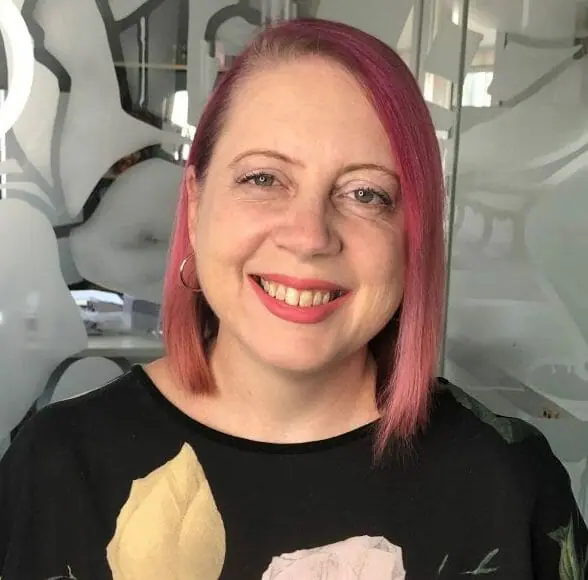Communities across Australia are grieving after a spate of domestic violence occurred over the weekend, leaving three women killed in separate incidents.
The tragic cases occurred in Darwin, Canberra and Brisbane, with investigations ongoing by police.
In Darwin’s northern suburbs on Saturday afternoon, the body of a 36-year-old woman was found inside a Coconut Grove unit, with police treating her death as domestic violence-related. A 43-year-old man was arrested at the scene and later charged with murder. It’s been reported he breached a domestic violence order and sexual intercourse without consent.
In Canberra, on Sunday, the body of 78-year-old Wanda Dorothy Uhle was found at a townhouse in Togo Place, with police treating the incident as related to domestic violence. The woman’s 86-year-old husband, Manfred Uhle has been arrested, but no charges have been laid. He’s currently being treated at Canberra Hospital and is under police guard.
In Brisbane, on Sunday, a man and woman were found dead inside an Albany Creek property. The man, in his 40s, and the woman, in her 70s, both suffered gunshot wounds, with police still investigating the circumstances.
The number of women killed by violence in Australia this year has already reached 32, according to Destroy the Joint statistics.
The rate of men murdering women has seen a sharp rise in 2024 compared to recent years. An Australian woman is now being violently killed every four days.
This violence has already been labelled a “crisis” for the country, and numerous advocates have spoken out, demanding urgent action.
Domestic violence and the upcoming State of Origin series
Amid this devastating escalation of male violence over the weekend, the looming State of Origin series, which begins on Wednesday, is making many domestic violence advocates concerned.
It’s no secret that when sporting events occur, domestic violence increases, often leaving women living in abusive relationships in an even more dangerous and vulnerable position.
Alcohol, gambling and increased stress have all been cited by researchers as factors to the uptick in male violence.
A recent review of global qualitative research found that the problems from men’s drinking go even beyond heightened violence. It causes a multitude of hidden and cumulative harms, acting as a tool for women’s economic, sexual and reproductive disempowerment.
CEO of Women’s Community Shelters, Annabelle Daniel, OAM, is sounding the alarm for the easy availability of alcohol as a huge contributing factor to domestic violence.

Daniel says we “cannot consider short and medium term strategies addressing domestic and family violence” without looking at the impact of alcohol as an accelerant to physical violence and how apps and delivery services make the substance easier to acquire.
“This means that where underlying attitudes predispose someone to violence, or violence is already present in the relationship, alcohol can be the fuel that makes it much worse,” says Daniel.
“Victim-survivors regularly tell us this is part of their experience. Not all, but significant numbers. We need to believe them.”
When will male violence end?
Just last week, we were listening to the heartbreaking but powerful words of Ariel Bombara, who pleaded for change after her father shot and killed a mother and daughter in Western Australia.
“My mother and I made it clear that our lives were at risk – we were repeatedly ignored, repeatedly failed,” Ariel Bombara told ABC News.
“These failures have cost the lives of two incredible women.”
Two weeks ago, we listened to the heartbreaking but powerful words of Dr Sophie Roome, a Lismore mother who lost her two-year-old son to a murder-suicide at the hands of his own father.
“Rowan’s life was ended by an evil and cowardly act of violence, perpetrated by a person he should have been able to trust the most. There are no excuses for this hurt, and no end to the pain it has caused,” Dr Roome’s statement read.
And before all of this, in March, we took to the streets in protest, calling for more action against gendered violence and demanding the government declare a national emergency.
The federal government’s response has been to undergo a “rapid review” of how best to prevent violence against women, but the advice isn’t expected to be delivered until later this year.
The domestic, sexual and family violence sector is adamant, however, that more needs to be done within a quicker timeline.
“All too often when inquiries are conducted following these killings, we learn that there were numerous opportunities to intervene and prevent these deaths,” one statement from female crossbenchers read, in an address to Prime Minister Anthony Albanese.
“It is too late at that point – we need to create a robust national effort to improve risk identification and justice system intervention in cases of male violence against women.”
If you or someone you know is experiencing, or at risk of experiencing, domestic, family or sexual violence, call 1800RESPECT on 1800 737 732, text 0458 737 732 or visit 1800RESPECT.org.au for online chat and video call services.
If you are concerned about your behaviour or use of violence, you can contact the Men’s Referral Service on 1300 766 491 or visit http://www.ntv.org.au.
Feeling worried or no good? No shame, no judgement, safe place to yarn. Speak to a 13YARN Crisis Supporter, call 13 92 76. This service is available 24 hours a day, 7 days a week.


